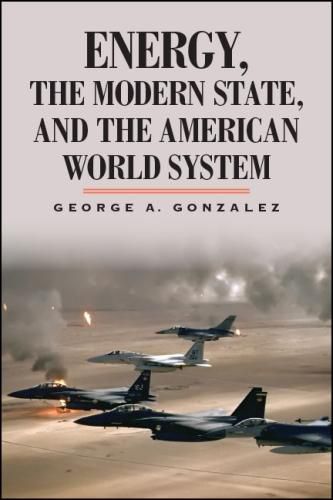Readings Newsletter
Become a Readings Member to make your shopping experience even easier.
Sign in or sign up for free!
You’re not far away from qualifying for FREE standard shipping within Australia
You’ve qualified for FREE standard shipping within Australia
The cart is loading…






In this provocative and original study, George A. Gonzalez argues that the relationship between energy and the state, as well as global politics, has become more and more deeply intertwined, reaching something of a crescendo with the global hegemony of Pax Americana in the twentieth and early twenty-first centuries. He presents a clear and concise case for viewing the modern state as the collaborative and affirmative union of capitalism and political authority in a setting where energy resources, be it wind, coal, or oil, provide the basis for the relatively inexpensive projection of political power. More broadly, energy serves as the foundation of the modern economy and, because of this, a prime function of the modern state is ensuring access to cheap, reliable sources to power and grow the economy. Historically, energy is more of a zero-sum resource than capital, markets, labor, or technology, and thus is a greater source of geopolitical tension and violence. Energy politics, and by extension international politics is, moreover, shaped by domestic corporate elites, especially those within the United States.
$9.00 standard shipping within Australia
FREE standard shipping within Australia for orders over $100.00
Express & International shipping calculated at checkout
In this provocative and original study, George A. Gonzalez argues that the relationship between energy and the state, as well as global politics, has become more and more deeply intertwined, reaching something of a crescendo with the global hegemony of Pax Americana in the twentieth and early twenty-first centuries. He presents a clear and concise case for viewing the modern state as the collaborative and affirmative union of capitalism and political authority in a setting where energy resources, be it wind, coal, or oil, provide the basis for the relatively inexpensive projection of political power. More broadly, energy serves as the foundation of the modern economy and, because of this, a prime function of the modern state is ensuring access to cheap, reliable sources to power and grow the economy. Historically, energy is more of a zero-sum resource than capital, markets, labor, or technology, and thus is a greater source of geopolitical tension and violence. Energy politics, and by extension international politics is, moreover, shaped by domestic corporate elites, especially those within the United States.